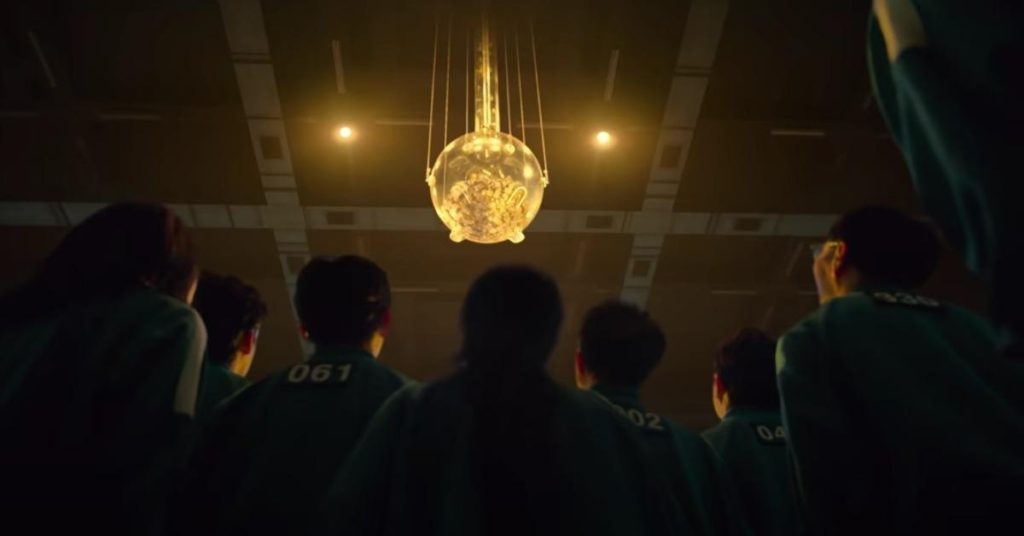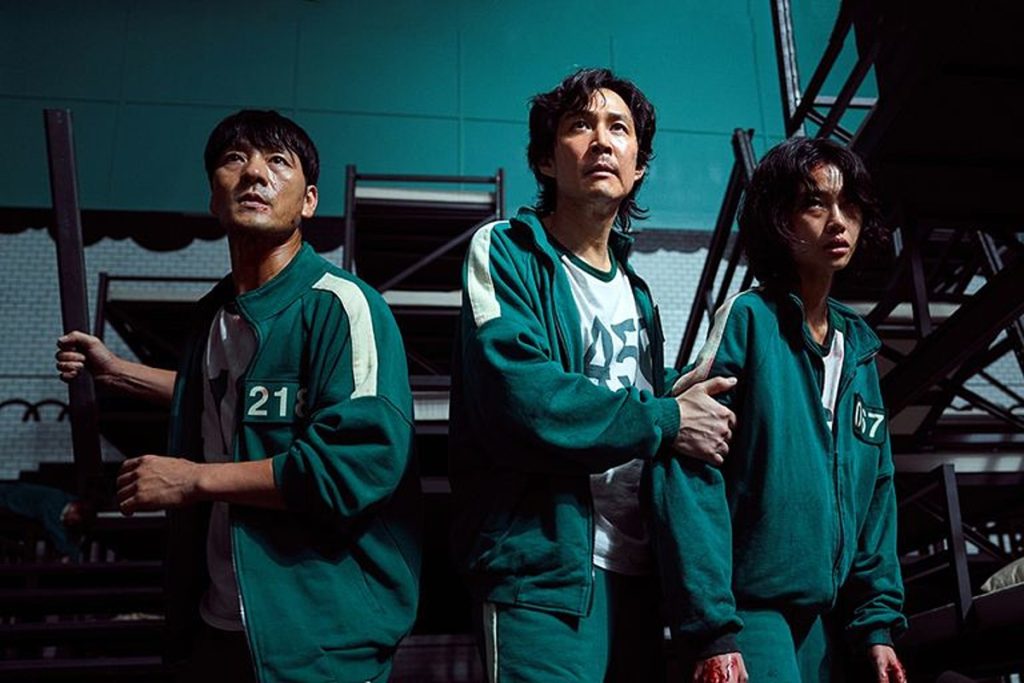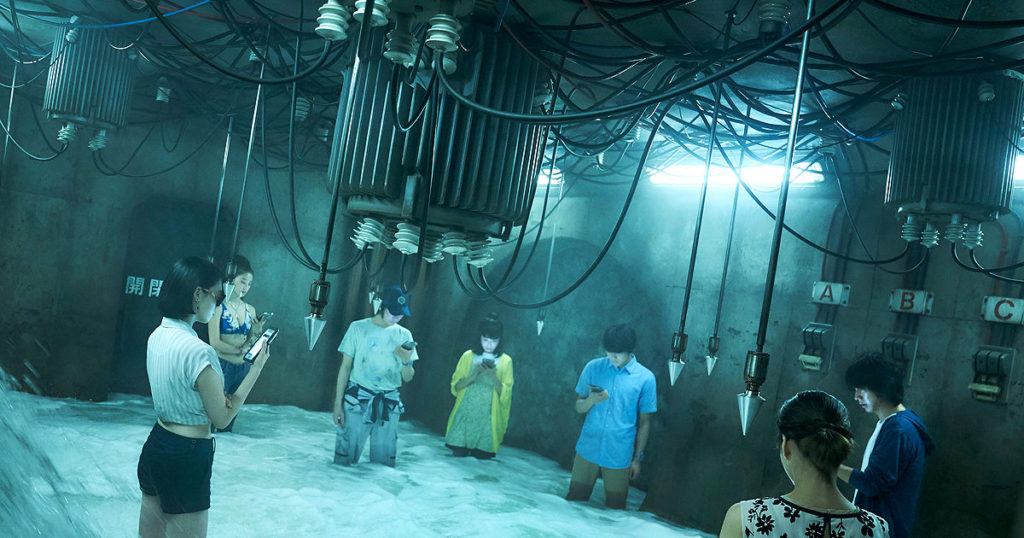Squid Game has gone viral on social media and reached number 1 globally within 10 days of its release. The violent survival K-drama has created multiple trending hashtags across Twitter and TikTok and is an addictive show of nine episodes to binge-watch within a weekend. It showcases the protagonist playing children’s games with a deadly twist—such as Red Light, Green Light or Tug o’ War played over six days. The prize? 45.6 billion won (about 38.5 million USD)—a cumulative amount of each player’s death in the games.

What makes the show so interesting are the bright colors used to create a pastel playground of nightmares and ultra-violent scenes. There’s also a good chunk of childhood Korean culture that’s inspired quite a few challenges on TikTok, but are otherwise still a nice piece of education. “
Children’s games, but with murder” sounds like an interesting premise as is, but Squid Game offers a concrete plot with detail and character relationships through rivalry, alliances, and betrayal. It isn’t just a gory show though.
It is fully aware of how cruel the premise is and the cruelty of what the players go through in real life, which makes the show so much more horrifying. This show is especially relatable (in some ways) to adults because of the older cast that Alice In Borderland doesn’t have. There are a lot of underlying implications of capitalism while maintaining a fantasy psychological thriller tone throughout the show—all while keeping an eye on how much shock value is used without becoming repetitive.
Squid Game doesn’t have as much world-building as Alice In Borderland, simply because it is “real world” people-against-people (with people as the rule enforcers)—where the latter has a larger supernatural aspect.

With an incredible ensemble cast, Squid Game is an addictive dystopian show that will keep you entertained and pressing play.
Alice In Borderland, a Japanese drama (with a partnering manga and anime) released in December 2020, tells the story of Arisu Ryohei and a group of other characters that are suddenly and randomly pulled into a “Phantom Tokyo”—another world in which time runs differently and the majority of people have suddenly disappeared.
Arisu and two of his friends emerge into Phantom Tokyo from a bathroom in Shibuya in order to participate in a series of games. These games, while unimaginably creative and unpredictable, are almost impossible to play—let alone win.
I certainly would’ve died in episode one.

Each game has a reward—a playing card. Each suit and number of a classic 52-card playing deck means a different level and type of game. Diamonds are a game of wits; testing your knowledge and ability to think outside the box. Clubs are team battles where you combine your skills to get to the end. Spades are games of strength—physically taxing and enduring. Hearts are a completely different story, yet make more sense by the name than the others.
In these games (usually played with a few other players), horrible rules are concocted to give the players only one choice—to betray. After a heartbreaking game of Hearts, Arisu begins a new journey through the rest of the series. After winning a game, a player gets a certain amount of days called a “visa” to recover from a game physically or mentally. You die unless you play another game within your visa expiration date.
Here, the show introduces Usagi, skilled in parkour and very agile. We see, from the begining before she’s introduced as an official character, that she chooses to stay alone and is very set in a predetermined mission. Even at the end of the currently aired season, we don’t fully know what her personal goal is. However, when Usagi finds Arisu half-dead in the rain on the pavement, we see a development of character and an appearence of compassion towards Arisu. Bringing him back to her make-shift camp, she gives him a reason to start living again.
Alice in Borderland also has one of the most impressive examples of world building that I’ve seen in foreign films—if the games weren’t enough to blow you away. A self-sustaining society in the dystopian world called Beach captures Arisu and Usagi to either join or die via expired visa. Beach has three rules; 1. Everyone must wear a swimsuit at all times (to not hide weapons, etc.); 2. You are free to enjoy anything and everything all the time; 3. Death to the traitors.

Beach was made as a “beacon of hope” for players to get out of Phantom Tokyo by collecting all 52 cards and theorheticlay allowing one player to return to the original world. With the face cards and a few number cards missing, members of Beach interupt their partying and scramble to win cards.
Even with different main protagonists and worlds, Alice in Borderland and Squid Game find common ground in blowing away audiences and creating binge-worthy material. However, if you like edge-of-your-seat, fact-paced entertainment with a good amount of drama and heart-felt—Alice in Borderland should be added to your list. Squid Game only ended up second on my list because of the heavy political and economic atmosphere. If that’s something you like in TV while also holding up the other genres well, Squid Game will be a better watch.
